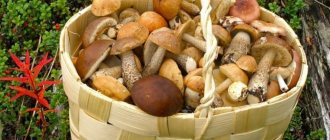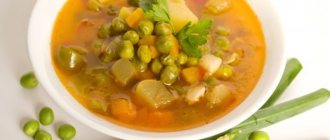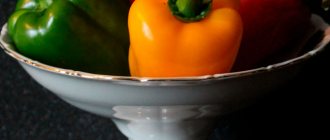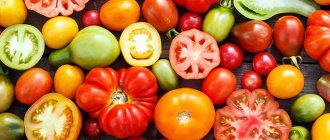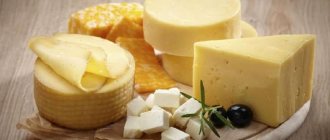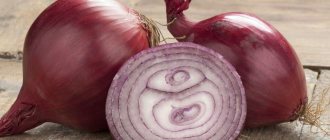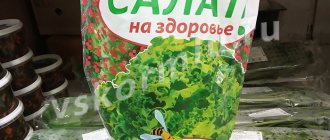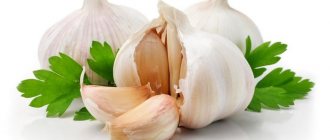Breastfeeding is accompanied by the introduction of new dietary restrictions that prevent the development of allergic reactions and other diseases in the newborn baby. Mushroom soup is very popular among lovers of rich and tasty food. If a nursing mother suddenly wants to enjoy this dish, then she is advised to familiarize herself with the possible consequences of eating mushroom soup.
Medical specialists and neonatologists do not recommend consuming dishes with the addition of mushrooms throughout the entire period of breastfeeding. This prohibition is due to the chemical composition of mushrooms, as well as their ability to influence digestive processes.
Beneficial features
Neither plants nor animals - in their biological characteristics, mushrooms are unique creatures of nature. It is not for nothing that they are called natural meat, because they contain a large amount of protein - up to 5.5 grams of protein per 100 grams of product. And dried ones contain 33 grams of protein - just like beef!

They are often included in menus for weight loss, because having tasted them, you will be full for a long time. And they have very few calories. By correctly (!) consuming mushrooms while breastfeeding, a woman has every chance of regaining her pre-pregnancy volumes and shapes.
In the mushroom composition you can find:
- Amino acids (i.e. proteins);
- Vitamins A, B and E;
- Beta carotene;
- Useful elements: iron, zinc, magnesium, phosphorus, potassium, etc.;
- Melanin;
- Beta gluconate.
And, of course, they contain a lot of chitin. It is because of this substance that they are digested for quite a long time. But it is chitin that helps remove toxins and metals from the body.
Is it possible to eat champignons while breastfeeding?
There are many rules and restrictions in the diet of nursing mothers - all of them are fair and did not arise out of nowhere. Mushrooms are healthy and nutritious, but are too difficult to digest, so they are prohibited during the lactation period, but there are exceptions to the rules. Mushrooms such as champignons can be consumed in small quantities while breastfeeding.
The benefits and harms of champignons during breastfeeding
Contraindications
There are many contraindications regarding the use of champignons during the lactation period.
A nursing mother can start eating champignons only with the approval of a doctor and no earlier than 3 months after giving birth.
Over the course of 3 months of life, the baby develops a digestive system capable of accepting heavier elements in mother’s milk. Mushroom dishes are contraindicated when fried or pickled.
Mushrooms should not be consumed in the following cases:
- mother: gastrointestinal disorder, constipation, kidney problems, gall bladder;
- child:
- abnormalities in the development of the gastrointestinal tract, liver, kidneys, cardiac system;
- infant diathesis;
- negative reaction from the gastrointestinal tract to meat and dairy products.
Beneficial features
Champignons are especially popular among the population of the country. They have long been cultivated and grown on an industrial scale, which makes it possible to buy quality products without fear of being poisoned by poisonous counterparts. They are easier to digest than their forest counterparts. The digestibility of mushrooms by the body is 80-90%.
Beneficial features:
- high water content allows you to maintain acid-water balance and improve metabolism;
- the fiber content allows you to remove the feeling of hunger for a long time and provide the body with the necessary amount of carbohydrates to maintain tone;
- proteins contained in mushrooms help quickly remove toxins from the body, actively participate in metabolic processes, cell construction and regeneration;
- antioxidants help improve immunity, which is especially important in the case of nursing mothers;
- minerals are represented by iron, calcium, phosphorus, iodine and zinc.
Champignon can easily become a worthy substitute for meat products. It is low in calories: 100 g contains only 27 kcal. Champignons are the safest mushrooms sold in stores. No chemical additives are used in their cultivation. Mushrooms are grown on thermally treated substrates made of straw and compost.
What is the danger
But, despite all their unconditional benefits, mushrooms are not in vain considered dangerous foods. If collected in the wrong place (for example, near a road), they contain heavy metals and toxins. They are also difficult and take a long time to digest, and therefore are contraindicated for use in diseases of the gastrointestinal tract.
So is the mushroom menu allowed during breastfeeding? After all, toxins can affect the baby. Is it permissible for nursing mothers to consume mushrooms, counting only on their benefits and ignoring the possible danger?
How to replace mushroom soup
If a nursing mother does not want to risk her health and the health of her newborn baby, then she needs to take care of finding an alternative to this dish. It is recommended to eat as first courses:
- Vegetable soups. Fresh and boiled vegetables contain useful vitamins and microelements. During lactation, it is recommended to consume vegetable soups that contain potatoes, cauliflower (with caution) and beets.
- Milk soups with cereals. These dishes are a source of calcium for mother and child. It is useful to eat milk porridge with rice, oatmeal and buckwheat.
- Meat broths. To prepare the broth, you need to choose dietary types of meat, such as duck, goose, chicken, and lean beef. Read more about the rules for using and preparing broths for nursing mothers in the article at the link.
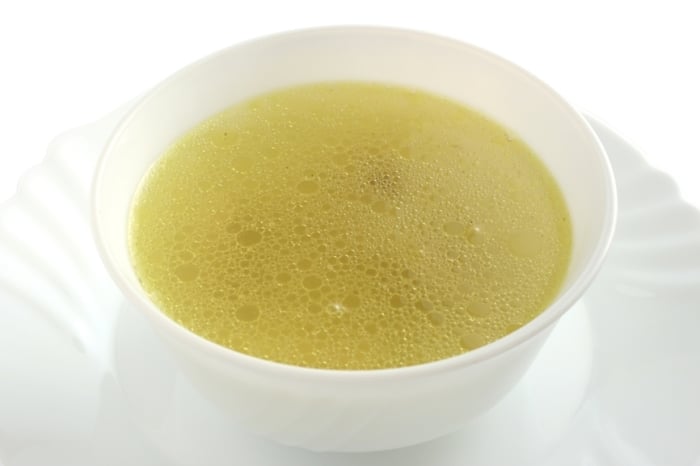
Foods such as lean fish, pasta, boiled chicken eggs, bran bread and fresh fruit will help a nursing woman diversify her diet. The choice of food during lactation must be approached with maximum responsibility.
Subscribe to our VKontakte group
Can a nursing mother eat mushrooms?
Doctors categorically state the fact that mushrooms can cause enormous harm to nursing mothers and babies.
After all, many of the extremely poisonous ones are disguised as edible mushrooms. And even purebred edible boletus or boletus accumulate harmful substances from the air, water and soil if they grow in an area with questionable ecology. During breastfeeding, they can hit not only the mother’s body, but also the child’s still fragile body. In the process of feeding on mother's milk, the baby can receive all the heavy substances along with food. That is why a nursing mother is strictly prohibited from eating mushrooms in the first months of feeding her baby.
The optimal time for such food comes after the baby is six months old or even later. Mothers of one-year-old babies can eat mushrooms once a week, and their quantity should not exceed 50-60 g.
But if you really want to, breastfeeding mothers can eat mushrooms, but in very small quantities. They should be introduced into the diet of a nursing mother with great caution, carefully monitoring the child’s further reaction. Otherwise, it can cause colic in the baby, food allergies, gastrointestinal disorders, tummy pain, and even lead to poisoning.
Forest mushrooms
As already noted, mushrooms during breastfeeding can be harmful and dangerous.
However, different types will have different effects during breastfeeding. Thus, the most toxic substances and metals are contained in wild mushrooms if they were collected in the wrong place. Porcini mushrooms, boletus, milk mushrooms and chanterelles should be eaten with great caution. Most pediatricians recommend the consumption of white and their forest relatives for about 10-12 months of lactation. Ideally, they are allowed to be eaten after lactation is completed. A nursing mother is allowed to collect mushrooms only away from roads and various industrial factories. And, of course, we must not forget about the basic rule of mushroom pickers - to collect only familiar caps, avoiding those that raise doubts. If the place is verified, and you or your relatives collected it yourself, then the risk is minimal. Buying mushrooms on the market is an unjustified risk.
Oyster mushrooms and champignons
If your mother decides to eat mushrooms during breastfeeding, you should pay attention to their careful selection.
Champignons are the most acceptable for use. They contain virtually no toxins. Champignons contain a sufficient amount of liquid, which is an important point during lactation. A nursing mother is also allowed to eat oyster mushrooms. There is no need to worry about the harmful effects of toxins, but oyster mushrooms are more allergenic.
Oyster mushrooms and champignons are grown on specialized farms and plantations. They won't do much harm. Of course, provided that they are of high quality and fresh (pay attention to appearance and expiration date)!
Does it make a difference what mushrooms are used? Store-bought or forest champignons?
If for a woman eating mushrooms is an uncontrollable passion, then you need to choose:
- mushroom soup;
- champignons or oyster mushrooms grown in greenhouses.
Mushrooms grown artificially on a sterile substrate can be used for cooking. In addition, buying fresh and healthy champignons in a supermarket is a guarantee of safety, which cannot be said about wild mushrooms.
Eating champignon soup is safer than stewing or frying them. Proper repeated boiling neutralizes a number of substances; mushroom broth has less effect on the gastrointestinal tract than stew or sauce.
Wild mushrooms can pose a potential hazard. The quality depends on the region in which they were collected and on the integrity of the collector. On sale in markets you can come across specimens found:
- in areas of increased radioactivity;
- on soils contaminated with chemical waste;
- within residential areas and busy highways, railways.
When buying dried mushrooms, you can become a victim of an unscrupulous seller; at best, you buy wormy mushrooms, at worst, poisonous mushrooms that look like edible ones.
If mushrooms are collected independently, then:
- you need to leave those that you are absolutely sure are edible;
- wormy, overripe, moldy ones should be thrown away;
- Apparently healthy specimens are checked by cutting - wormy ones are not taken;
- do not collect specimens growing in questionable places.
In the future, the mushrooms need to be prepared for storage - dried, boiled and frozen, preserved in any way. If among all these forest gifts there is a single poisonous specimen, the result will be irreparable.
What foods should you avoid?
A young mother should remember that in the first and second months of a baby’s life, mushrooms are strictly prohibited while breastfeeding.
By the way. Popular children's doctor Komarovsky categorically does not recommend consuming mushrooms during lactation. In his opinion, the mother should complete breastfeeding and only then feast on “hats and legs.”
A nursing mother should avoid eating canned or pickled mushrooms. Salty, half-baked, raw versions are also considered harmful. Fried mushrooms should also be crossed off the menu. The oil used during frying will make the mushrooms even more difficult to digest.
Reasons for the ban
The main goal of a nursing woman is to provide her child’s body with all the necessary nutrients. Thanks to this goal, the young mother reviews her diet and follows dietary recommendations. The chemical components that a woman receives with food penetrate into mother's milk.
Mushroom soup is prohibited during lactation for a number of reasons:
- This dish creates an increased load on the digestive organs. The body of a nursing mother is in an energetic decline after childbirth, so the additional load causes health problems. In addition, the body of a newborn baby does not have the proper amount of digestive enzymes capable of digesting the components of heavy food. When consuming mushroom soup, an infant may develop intoxication of the body.
- High risk of allergic reaction. Substances contained in wild and cultivated mushrooms often cause allergic reactions. The newborn’s body is not familiar with these components, so the risk of allergies increases several times. An allergy to this dish manifests itself in the form of a skin rash, increased body temperature and peeling of the skin. Such an allergy is dangerous due to its transition to a chronic form.
- Eating dishes containing mushrooms leads to the formation of flatulence and intestinal colic in a child. In addition, the baby has problems with stool, expressed in the form of constipation or diarrhea.
Recipes for mushroom dishes for gw
Mushrooms can only be cooked by a nursing mother by baking or stewing. Mushroom broths and casseroles are also considered acceptable dishes.
Is it possible for a nursing mother to have mushroom soup?
Mushroom soup during breastfeeding is recognized as one of the most popular dishes for young mothers. You will need the following ingredients:
- mushrooms (porcini, boletus, champignons...) - 800 g;
- potatoes - 2 pcs.;
- dill - 1 bunch;
- carrots - 1 pc.
The mushrooms are cleaned and filled with water. Set to simmer, after boiling remove the foam and reduce the heat, skim off the foam, add salt and cook for another 40 minutes. Next, peeled and chopped vegetables are added to the soup (it is better to fry the carrots first), which are cooked until tender. You can eat soup with the addition of sour cream.
An important point: mushroom soup for a nursing mother cannot be cooked from conditionally edible mushrooms (for example, milk mushrooms), because harmful substances pass into the broth during cooking.
Cutlets with buckwheat and oyster mushrooms
Mom can also eat mushroom cutlets. To prepare them you will need:
- champignons (oyster mushrooms) - 100 g;
- Buckwheat - half a glass;
- flour - 2 tbsp
- carrots - 1 pc.;
- onion - 1 pc.;
Peel the carrots and onions, cook the buckwheat until tender. Finely chop the champignons and onions, grate the carrots. Lightly fry the vegetables, mix with buckwheat and mushrooms, then add flour and pour in a teaspoon of oil (vegetable). Cutlets are formed from the resulting minced meat. They can be prepared in several ways: fry, bake in the oven, steam in a slow cooker.
Rice with champignons
Another side dish option that can be used to cook mushrooms for a nursing mother is rice. The recipe includes the following components:
- champignons - 350g;
- rice - 200g;
- carrots - 1 pc.;
- onion - 1 pc.
- dill - 1 bunch.
Carrots and onions are peeled, chopped and lightly fried in vegetable oil. The chopped champignons are sent to the vegetables, everything is mixed and simmered with the lid closed for 5-7 minutes. Next, add spices to taste, pour in rice and add water. Normally it should cover about a centimeter of the mixture. After boiling, cover the container with a lid and simmer the dish until the rice is completely cooked.
Dish replacement options
Mushrooms are a delicacy, the issue of replacing it is not significant for a nursing mother. The closest taste to them would be stewed eggplants with sour cream.
For preparation you will need:
- several young eggplants;
- large onion;
- ½ vegetable oil;
- ½ thick sour cream;
- a few cloves of garlic;
- salt and pepper;
- fresh greens.
Well-washed, peeled eggplants are cut into small cubes, salted, and set aside. Finely chop the onion.
Pour oil into a saucepan or deep frying pan, heat it, add onion, and sauté. The washed eggplants are also sent there and stewed until half cooked.
Pour in sour cream; if the dish is too thick, add a little hot water. At the end of cooking, add chopped garlic, salt and pepper, and finely chopped herbs. Some housewives do not peel eggplants, but wash them well and leave the skin on.
This dish can be consumed by women after the child is 6 months old. Some babies do not like the taste of garlic in milk and may refuse to breastfeed.
How to cook mushrooms?
Recipes for mushroom dishes during breastfeeding should include maximum preservation of all beneficial substances. The method of preparing the mushrooms is important to minimize harm to the child.
Fried mushrooms are not the healthiest way to eat food. At the same time, during the frying process, not all harmful substances can evaporate, and therefore if you like fried mushrooms, then you need to fry them correctly. Before frying, it is recommended to simmer almost all types of mushrooms for about 10 minutes, and then you can add a drop of oil and fry. But you should not get carried away with such processing of mushrooms during lactation, because this is a very harmful method.
Pickled and canned mushrooms require the addition of a significant amount of salt and vinegar during the cooking process. This means that when consuming such mushrooms, the amount of sodium in a woman’s body increases, which retains water. This is not very good for the general condition of a nursing mother. For a baby, the strong smell of vinegar can affect the quality of breast milk, and he may simply refuse milk. Therefore, pickled mushrooms are not recommended during lactation.
Dried mushrooms are one of the best ways to store mushrooms and still retain the maximum benefits. This is a very useful product, which is one of the first in terms of iron content. Therefore, dried mushrooms should be a choice for new mothers.
Salted mushrooms require a large amount of salt with minimal heat treatment. This prevents the extraction of potentially dangerous elements in mushrooms. And if such mushrooms are eaten in everyday life, then they cannot be recommended for nursing mothers.
Soup with mushrooms, especially dried ones, is very healthy and nutritious. It can be a great dinner that will provide energy and healthy vitamins. This method of cooking mushrooms minimizes poor digestion of mushrooms. Therefore, mushroom soup can be considered one of the healthiest mushroom dishes.
Here are some recipes you can use to prepare lactation mushrooms that are healthy and delicious.
Mushrooms with ricotta cheese
To prepare you will need:
- 200 grams of ricotta cheese;
- one egg;
- one lemon;
- 2.5 grams of salt;
- 2.5 grams freshly ground black pepper or to taste;
- 2.5 grams of red pepper;
- 4 slices of French bread;
- 15 milliliters of olive oil;
- 16 mushrooms, chopped;
- 50 grams of green onions;
- 200 milliliters chicken broth;
- 10 milliliters of lemon juice;
- Thirty grams of Italian parsley
First of all, you need to heat the oven to 200 degrees C.
Mix ricotta, egg, lemon zest, 1/2 teaspoon salt, black pepper and red pepper flakes in a bowl until smooth.
Place the toasted bread pieces on a baking sheet. Sprinkle with 1 tablespoon olive oil and divide ricotta mixture evenly among 4 slices of bread.
Bake in preheated oven until cheese is toasted, about 12 minutes.
You need to heat the frying pan and add some oil to heat it up; then add mushrooms and cook until golden, 5 to 7 minutes. Add green onions; cook and stir until softened, 2 to 3 minutes. Reduce heat to medium-low. Add broth and lemon juice to mushroom mixture; cook until the liquid has evaporated. Reduce heat to low. Stir in parsley and oil. Season with salt and black pepper to taste.
Possible complications
If a young mother was careless to try this dish, then she should carefully monitor the baby’s condition during the next 3 feedings. If peeling or a rash appears on the baby’s skin, if the baby has become restless and his bowel habits have changed, then the woman urgently needs to show the baby to the doctor. If there have been no changes in the baby’s condition, then continuing experiments with eating mushroom soup is strictly prohibited.
If mushroom dishes are present on the home menu, this is fraught with the development of digestive disorders in both mother and child. 30-40 minutes after eating mushroom soup, a woman may feel heaviness in the stomach, nausea and other symptoms of digestive disorders. This clinical picture occurs as a result of irritation of the pancreatic tissue by the chemical components contained in the mushrooms.
A newborn baby may also experience a feeling of nausea and vomiting, which often leads to dehydration. When consuming wild mushrooms, damage to the central nervous system is often observed, which is expressed in general malaise, sleep disturbance, dizziness and headache.

Eating dishes containing mushrooms is only permissible when the child turns 2 years old. At this point, the baby’s digestive system is able to produce the required amount of enzymes.
Recommendations for safe use
Whatever decision the mother makes, she is responsible for the well-being and health of her child. If there is no doubt about the quality of the product, for a positive outcome you must adhere to the following rules:
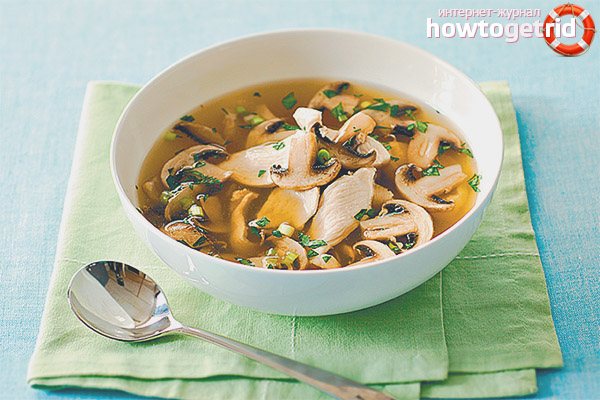
- Mushrooms are boiled in salted water, changing it twice after boiling. This simple manipulation will help reduce the amount of toxic substances and harmful components.
- Before deciding to consume your favorite product, it is recommended to wait until your child reaches 6 months of age.
- The first portion should not contain many mushrooms. It is enough to limit yourself to 4 small pieces and broth (100 g). The best time to start introducing any new product is in the morning, but it is still better if the mother’s stomach is not empty.
- Monitoring of the child’s condition continues for at least two days, and it should be more thorough. Disruption of the digestive system, allergic reaction, vomiting, pallor, weakness, fever, nervousness - require immediate consultation with a doctor.
- Mushrooms should not become a constantly consumed product.
- Each subsequent use of soup requires the same attention to the baby as after the first serving. You need to think about whether the gastronomic delight is worth such nervous shock, because the consequence can be poisoning, partial or complete failure of the kidneys, liver, as well as allergic symptoms.
- To obtain at least some benefit, it is not recommended to fry mushrooms before adding them to the soup. To avoid causing intestinal flatulence, raw vegetables are not served with the soup.
In conclusion, we can conclude that it is better to postpone the consumption of the delicacy until the child feeds independently.
Possible complications
Is mushroom broth suitable for a nursing mother? Every mother in labor should understand that the food she eats affects the well-being of the newborn. It is better to completely exclude mushroom dishes until the end of breastfeeding.
If a woman introduces mushroom soup into her diet for the first time during lactation, it is very important to monitor the baby’s reaction on the first day.
If symptoms such as redness of the skin, changes in stool, fever or vomiting appear, you must call an ambulance and exclude the dish from your diet.
